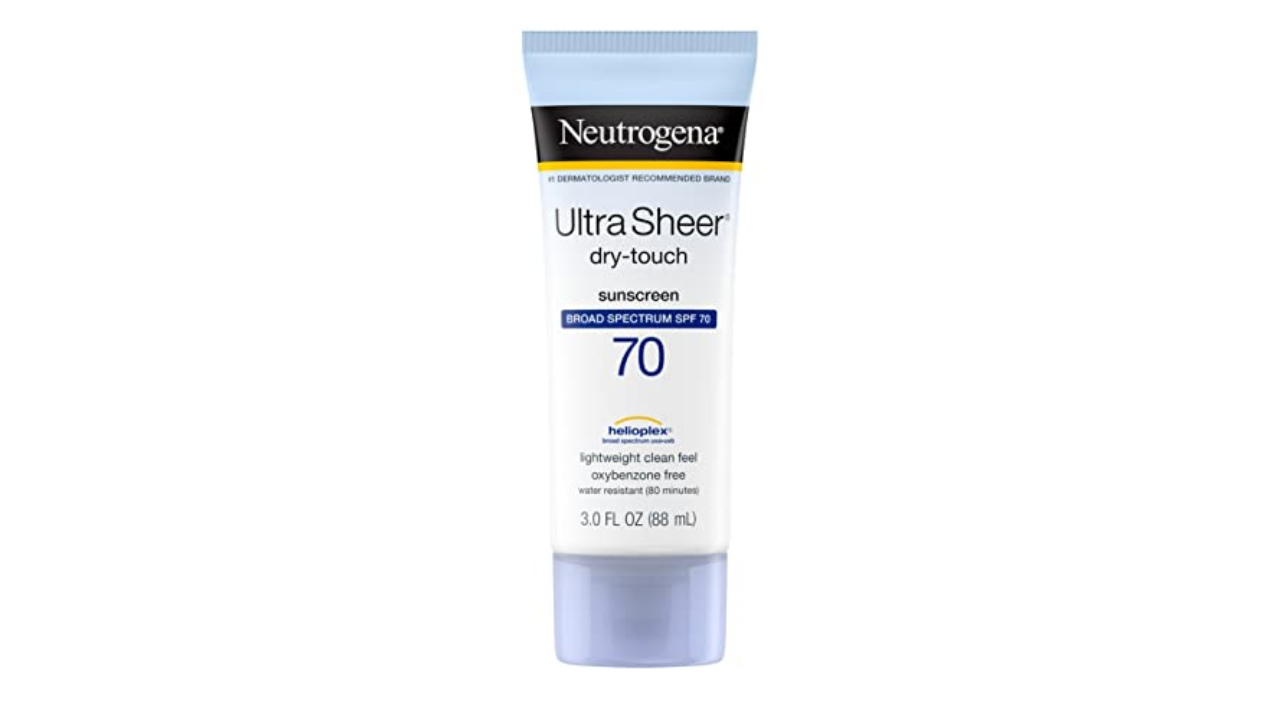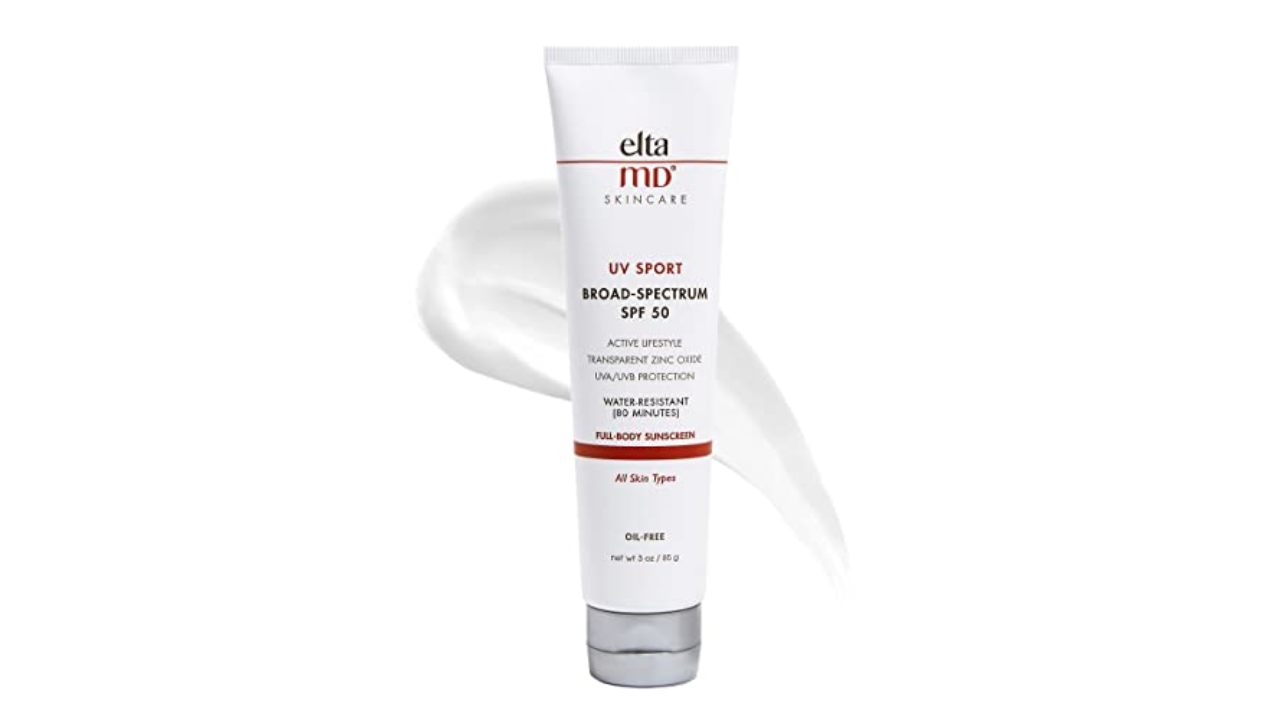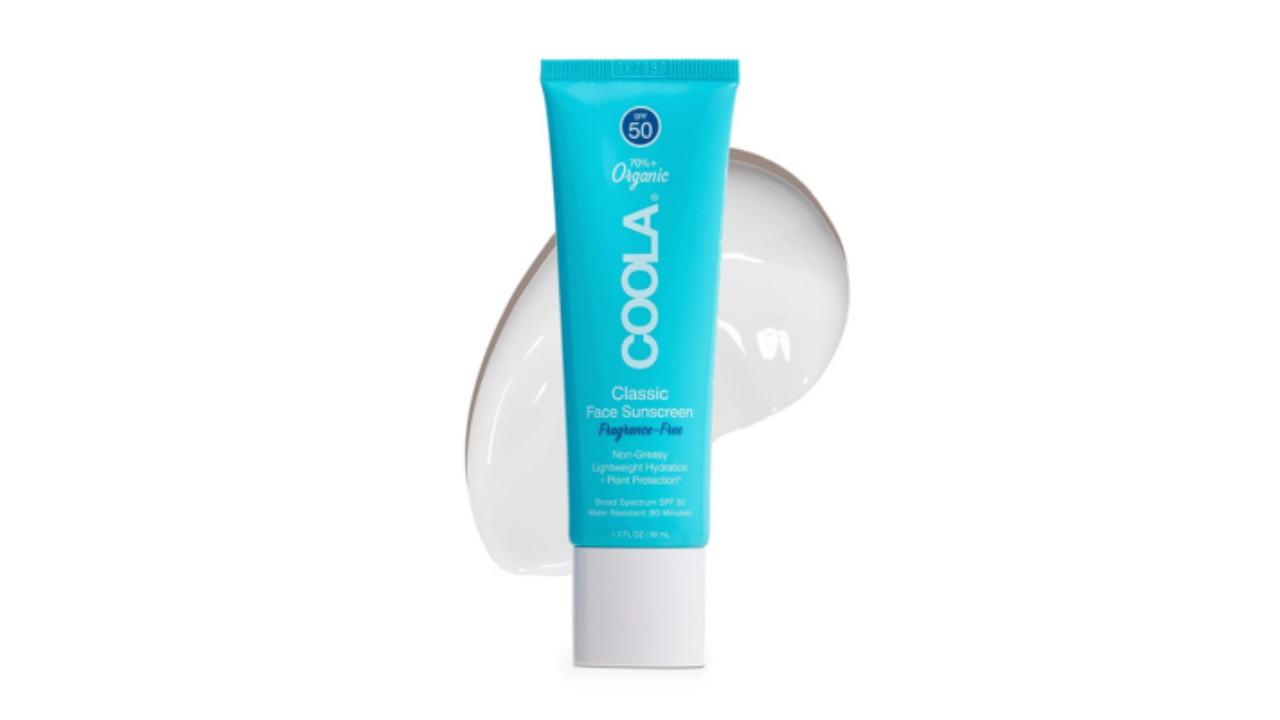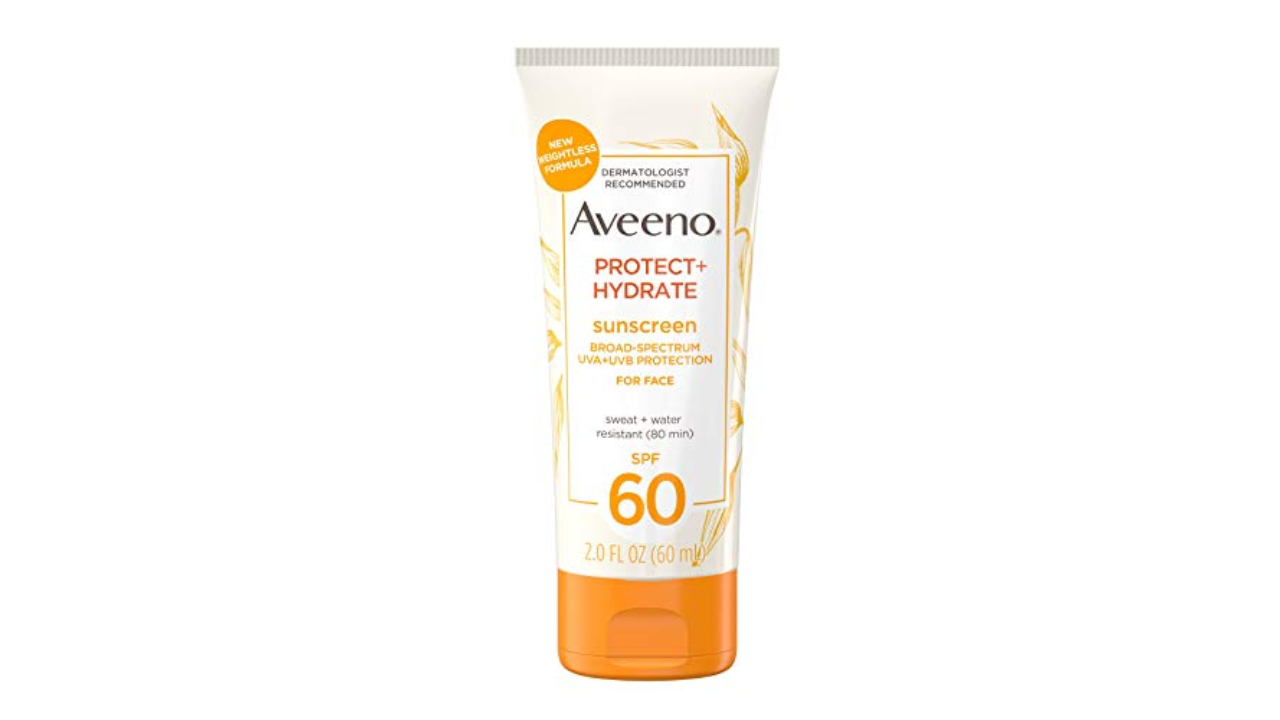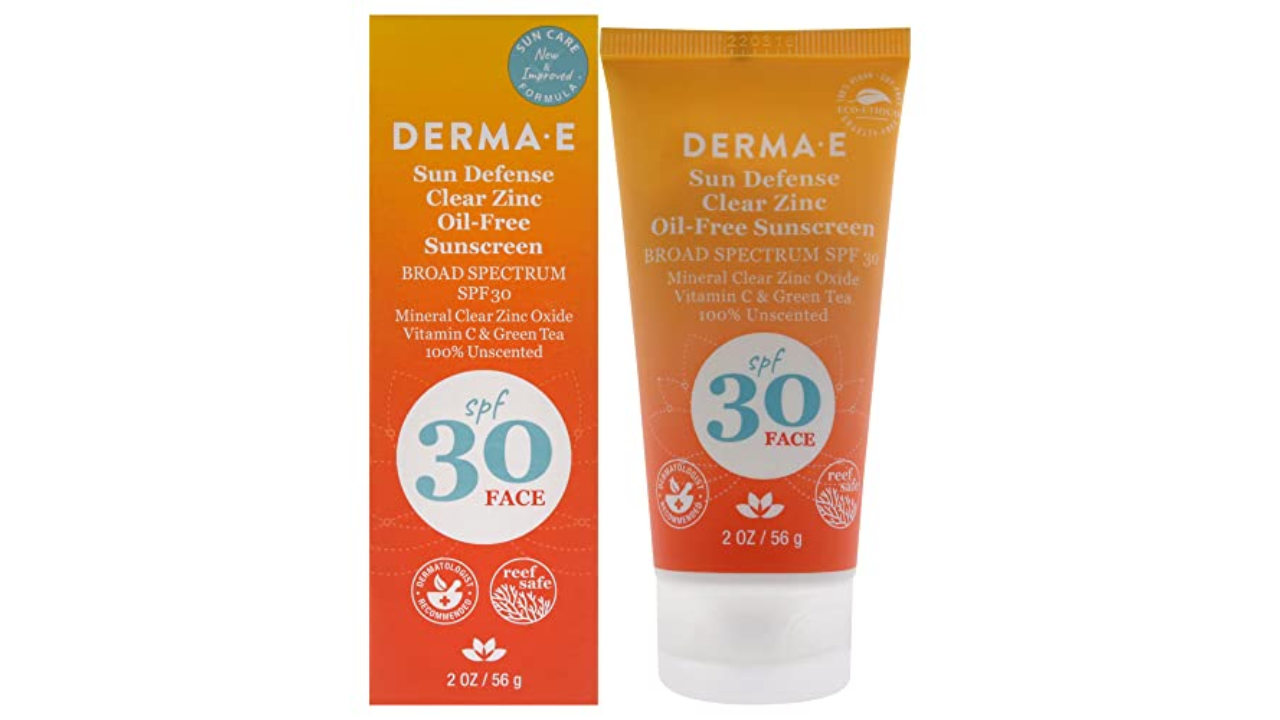We independently evaluate the products we review. When you buy via links on our site, we may receive compensation. Read more about how we vet products and deals.
The best sunscreens dermatologists recommend — and use themselves — in 2024
From Aveeno to Neutrogena, EltaMD to Isdin — top skin care experts share their picks for the best sun protection of the year.
We're still in peak summer, which means, if you're going out in the sun, using the best sunscreen you can find is a no-brainer. However, experts advise that, once autumn rolls around, incorporating sun protection into your skin care routine should remain a priority. Even a cool, overcast day exposes your skin to potentially harmful rays, and can lead to long-term skin damage. And, with an array sunscreen sticks, spray sunscreens and tinted sunscreen-skin care hybrids, there’s now an option for every person.
Neutrogena Ultra Sheer Dry-Touch Water Resistant Sunscreen
Best high-SPF sunscreen
EltaMD UV Sport Sunscreen Lotion, SPF 50 Body Sunscreen, Water and Sweat Resistant, Oil-Free, Zinc Oxide Formula, Travel Size, 3 oz Tube
Best noncomedogenic sunscreen
Isdin Eryfotona Actinica Mineral Sunscreen SPF 50+
Best sunscreen for sun-damaged skin
Coola Organic Face Sunscreen Broad Spectrum SPF 50
Best reef-friendly sunscreen
Aveeno Protect + Hydrate Moisturizing Face Sunscreen
Best sunscreen for skin repair
Derma-E Sun Defense Mineral Oil-Free Sunscreen SPF 30 Face
Best hypoallergenic sunscreen
Read more: The best sunscreens for your face in 2024, recommended by dermatologists
Not only can using a powerful SPF cream decrease your chance of developing skin cancer, it can also help prevent unwanted sun damage and signs of premature aging. To find out more, we tapped dermatologists Dr. Joshua Zeichner, Dr. Cynthia Bailey, founder of Dr. Bailey Skin Care, board-certified facial plastic surgeon Dr. Kay Durairaj and Dr. Gary Goldenberg, assistant clinical professor of dermatology at the Icahn School of Medicine at Mount Sinai in New York, to find out everything from how often you should use to how to shop for the best options.
Still not sure where to start? Below, we've rounded up the seven best sunscreens dermatologists not only recommend, but actually use themselves. We've got something in the mix for every skin type, whether you have acne-prone, oily skin; dry, sensitive skin or something in-between.
Best sunscreens of 2024
SPF: 70 | Broad spectrum: Yes | Water resistance: Up to 80 minutes | Mineral or chemical: Chemical | Active ingredients: Avobenzone 3%, Homosalate 15%, Octisalate 5%, Octocrylene 4.5%
Most folks don't apply enough sunblock, so a high SPF can help target extra coverage. Derms love this lotion for its broad-spectrum protection and fast-absorbing finish.
“This sunscreen has been clinically tested and shown to give better sunburn protection compared to sunscreens with lower SPFs,” Zeichner says. Neutrogena’s Ultra Sheer Dry-Touch Sunscreen has a lightweight formula, is fast-absorbing, has a non-greasy matte finish and can be found at the drugstore. Zeichner particularly likes its high SPF. “In the real world, consumers do not apply as much sunscreen as they should, so the level of protection gets diluted,” he explains. “Starting with a higher SPF to begin with acts like an insurance policy to give you the best level of protection possible.”
- Affordable
- Lightweight, dry-touch formula
- Formula can separate
SPF: 50 | Broad spectrum: Yes | Water resistance: Up to 80 minutes | Mineral or chemical: Mineral |Active ingredients: 9% Zinc Oxide, 7.5% Octinoxate, 5% Octisalate
This feather-light formulation is all about the finish. It absorbs quickly and gives the perfect dose of moisture. Dermatologists recommend it to patients with breakouts or acne-prone skin who need great SPF protection but a non-greasy formula.
EltaMD is known for its quality sunscreen, and Goldenberg is a fan. “This product is noncomedogenic, offers broad-spectrum UV protection and does not leave your face feeling greasy,” he says. EltaMD’s UV Sport is mineral-based and water-resistant, so it won’t drip into your eyes when you sweat.
- Can be applied to wet or dry skin
- Great for sensitive skin
- Pricey
SPF: 50 | Broad spectrum: Yes | Water resistance: Yes | Mineral or chemical: Mineral | Active ingredients: 100% Actinica Zinc Oxide
The name may be a mouthful, but Goldenberg swears by this one. He particularly recommends it for patients who have known sun damage. Isdin’s Eryfotona Actinica is one of the best mineral sunscreens, is lightweight, won’t leave your skin feeling greasy, and has UVA/UVB protection. It also has DNA repair somes and vitamin E to help fight UVA-induced skin damage.
- Fast-absorbing, non-greasy formula
- Doesn't leave a white cast
- Very expensive for a small bottle
SPF: 50 | Broad spectrum: Yes | Water resistance: 80 minutes | Mineral or chemical: Chemical | Active ingredients: Avobenzone 1.75%, Homosalate 5%, Octisalate 2%, Octocrylene 5%
Packed with the active ingredient zinc oxide, this broad-spectrum sunscreen has a water- and sweat-resistant formula that wears well under makeup, and it's reef-safe, meaning it won't release harmful chemicals into the water while you're frolicking.
Dermatologist Dr. Cynthia Bailey calls Coola’s Organic Face Sunscreen “a nice zinc oxide product.” This fragrance-free option doubles as a lotion, so you can moisturize and protect in one go. It’s easy to wear under makeup and is water- and sweat-resistant for up to 80 minutes. A nice feature: Coola’s sunscreen is reef-friendly, so you don’t need to worry about harming ocean life when you go for a swim.
For more on these environment-friendly products, check out our roundup of the best reef-safe sunscreens of 2024.
- Non-greasy, hydrating formula
- Sits well under makeup
- Pricey for less than two ounces
SPF: 60 | Broad spectrum: Yes | Water resistance: Up to 80 minutes | Mineral or chemical: Chemical | Active ingredients: Avobenzone 3%, Homosalate 13.5%, Octisalate 5%, Octocrylene 10%
Broad-spectrum, SPF 60 protection aside, this oil-free sunscreen won't clog pores, and it contains oatmeal, a nourishing ingredient, that helps repair and moisturize the skin's finicky outer layer.
Zeichner likes Aveeno’s Protect + Hydrate sunscreen for a few reasons. “Besides offering broad-spectrum sun protection, it delivers a little oatmeal to repair and hydrate the outer skin layer,” he says. “We know that UV light can disrupt the outer skin layer, leading to dryness and irritation.” The sunscreen is fast-absorbing, oil-free and noncomedogenic, so it won't clog your pores. It’s also water-resistant for up to 80 minutes.
- Affordable
- Hydrating formula
- Some reviewers said it stung their eyes
SPF: 30 | Broad spectrum: Yes | Water resistance: No | Mineral or chemical: Mineral | Active ingredients: Zinc Oxide 19.5%, Titanium Dioxide 2.64%
This unscented formula is safe for sensitive skin — it's made with fast-absorbing zinc oxide and is packed with bonus wellness ingredients like vitamin C and green tea to help quell irritation.
Derma-E’s Sun Defense facial sunscreen is 100% fragrance-free, a factor that Bailey likes. It’s also fortified with vitamin C and green tea to help skin recover after sun exposure and fight the signs of aging. The physical sunscreen’s zinc oxide and titanium dioxide formula provides broad spectrum UVA/UVB sun protection, and it’s oil-free so it won’t clog your pores.
- Fragrance-free
- Doesn't leave a white cast
- Formula can pill
Factors to consider when choosing a sunscreen
SPF (Sun Protection Factor) : "In general, it’s a good idea to look for a sunscreen that’s at least SPF 30 or higher and has the words 'broad spectrum' on the label," says Bailey.
Broad spectrum: The term indicates that it will protect you against both UVA rays, which cause premature aging and the development of skin cancers, and UVB rays, which cause sunburn.
Type (i.e. stick, spray, lotion): This is mainly about personal preference: “Whether it’s a lotion or gel, stick or spray, the best sunscreen is ultimately the one you are actually using on your skin,” Zeichner says.
FAQs
When should I apply sunscreen in my skin care routine?
According to Los Angeles facial plastic surgeon Dr. Kay Durairaj, the most effective sequence for working sunscreen into your morning skin care routine is as follows:
Cleansing: Begin with a gentle cleanser. [Durairaj recommends her own KD Skin Glycolic Cream Wash] to "help skin glow by removing overnight dull skin buildup and oils. For mature skin," she says, "a hydrating cleanser can help maintain the skin's natural moisture barrier."
Serums: "Apply any serums next," Durairaj explains. "Antioxidant-rich serums, such as those containing vitamin C, are particularly beneficial for mature skin, offering protection against free radicals and promoting collagen production."
Moisturizer: Follow with a moisturizer suited to mature skin types. "Products that contain ingredients like hyaluronic acid, peptides and ceramides can provide deep hydration, support skin structure, and improve texture," Durairaj says.
Sunscreen: "After allowing the moisturizer to absorb fully, apply a broad-spectrum sunscreen with an SPF of 30 or higher," Durairaj advises. "For mature skin, a sunscreen that includes moisturizing ingredients and is formulated for sensitive skin may offer additional benefits without causing irritation."
Makeup: According to Durairaj, if makeup is part of your routine, it should be applied after the sunscreen has been fully absorbed. She also recommends using mineral-based products that can further protect the skin from the sun.
Is lotion better than spray sunscreen?
The lotion vs. spray sunscreen question largely comes down to your personal preference. Many prefer spray sunscreen because it’s easier and faster to apply without rubbing in, but some say it’s harder to achieve full coverage with a spray bottle if you’re applying it yourself. With lotion, it’s sometimes easier to both apply by hand and to see which spots you’ve missed.
Is there a downside to higher SPF?
Believe it or not, more is not always better when it comes to SPF in sunscreen. Some lotions with higher SPF ratings use chemicals that are harmful to reefs and ocean wildlife and can also trigger sensitive skin. Aside from that, a more likely concern is that those using higher SPF lotions often have a false sense of security. Just because your lotion is high in SPF doesn’t mean you don’t need to reapply or that you’re immune to damaging effects from the sun. Keep this in mind when opting for a higher SPF. Finally, you might find that lotions with higher SPF ratings are more expensive.
How often should you apply sunscreen?
You’ve heard it before: You should wear sunscreen often, ideally every day, to protect against the sun’s rays. Dermatologists don’t just talk about the importance of wearing sunscreen — they practice what they preach. “I wear it every day, 365 days a year,” Goldenberg. (His top pick for daily wear is EltaMD's Sunscreen Sport Lotion.) "Even in winter, you still get some UV that can cause skin damage."
And they make it easy to remember: “I actually incorporate sunscreen into my daily grooming routine and apply it right after shaving,” Zeichner tells Yahoo Life. Even if you are diligent about applying sunblock every morning, don't forget to reapply throughout the day — especially if you are spending a lot of time in the sun.
Meet our experts
Dr. Joshua Zeichner, a dermatologist based in New York City
Dr. Cynthia Bailey, dermatologist and founder of Dr. Bailey Skin Care
Dr. Gary Goldenberg, assistant clinical professor of dermatology at the Icahn School of Medicine in New York City
Dr. Kay Durairaj, facial plastic surgeon based in Los Angeles





